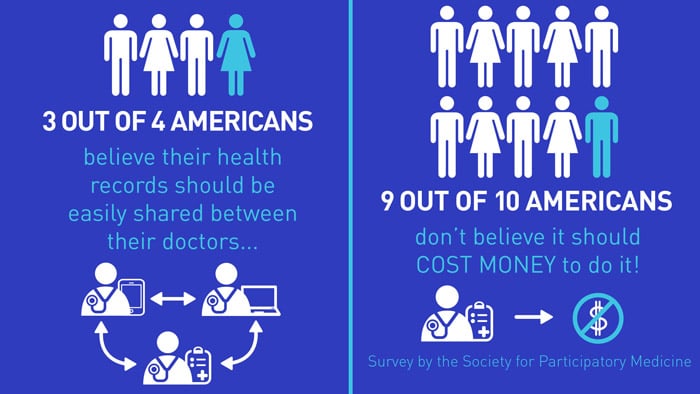Nearly 75% of American adults believe it is very important that their critical health information can be easily shared between physicians, hospitals and other healthcare providers, according to a survey by the Society of Participatory Medicine and conducted by ORC International.
“What this survey points out is that when critical health information can’t be shared across medical practices and hospitals, patients are put at risk,” said Daniel Z. Sands, MD, MPH, co-founder and co-chair of the Society of Participatory Medicine and a practicing physician.
The survey also revealed that 87% of respondents are overwhelmingly against any fees being charged to either healthcare providers or patients for the transfer of critical health information.
Several independent sources claim that doctors are forced to pay anywhere between $5,000 to $50,000 to set up connections that allow them to transmit information to blood and pathology laboratories, health information exchanges or governments. Sometimes additional fees are charged each time a doctor sends or receives data.
In addition, nearly 20% of Americans surveyed felt that they, or a family member, experienced a problem receiving medical care because their health records could not be shared between different healthcare providers. Yet another survey, conducted by PriceWaterhouseCoopers, shows that 60% of providers face delays accessing current patient data and cites these limitations as a major barrier to effective use of health care information.
Dr. Sands went on to say, “We have the technology. What we need is for health care providers and systems developers to put patient interests ahead of business needs. None of them would exist were it not for the patients.”


